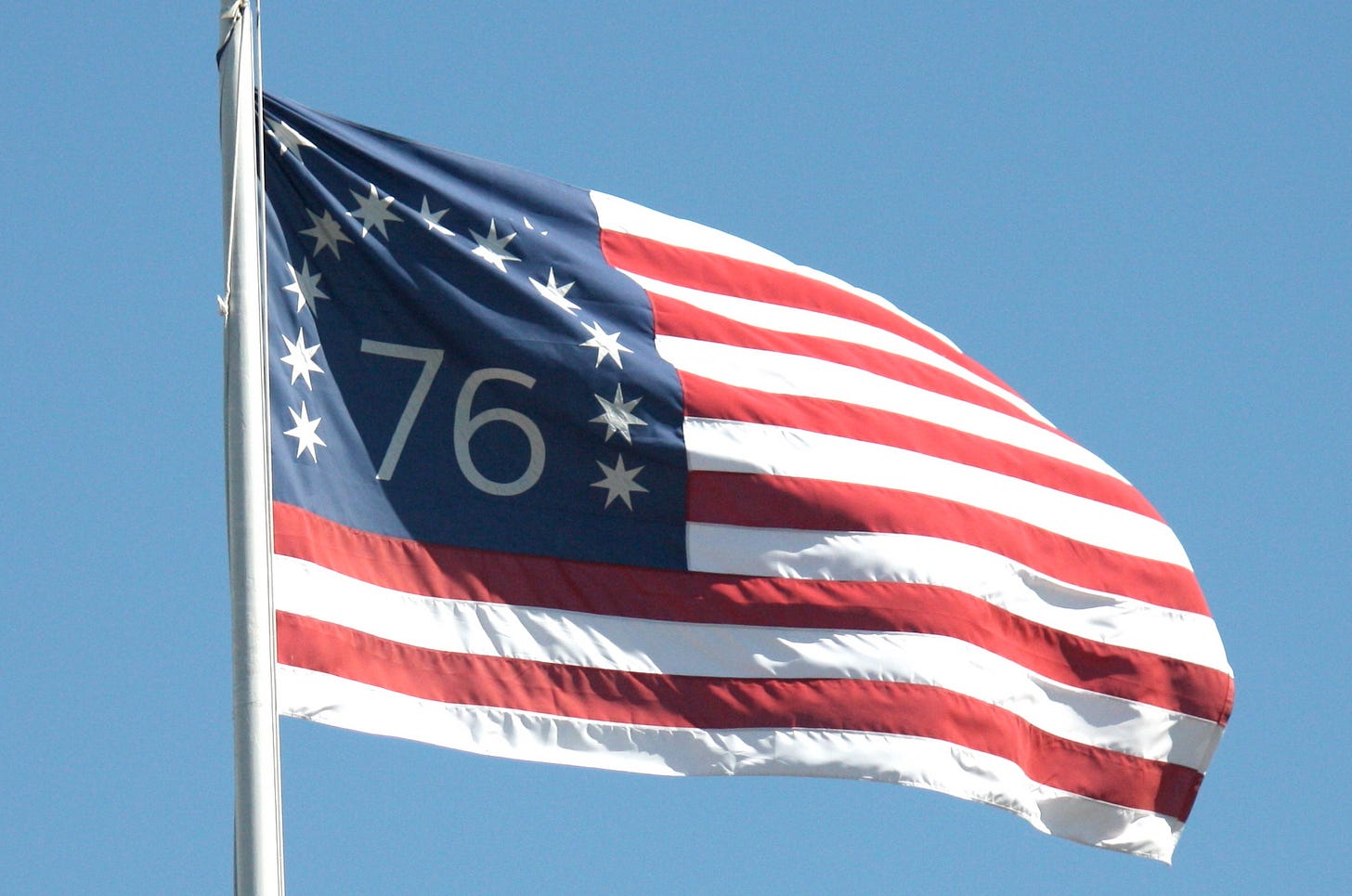Liberty and Independence
On Independence Day we celebrate "treason" from a centralized, far-away, overreaching government with the goal of increasing individual liberty

Nobody should need a history lesson on what the Fourth of July, Independence Day, means for the United States and Americans, but we’ve fallen far short of the principles that this federation of States was founded upon in 1776. The U.S. federal government in Washington, D.C. is bigger, more centralized, and less accountable to the people or the States than the British Parliament or King George could have dreamed of being at the time the American Colonies declared their independence.
We’ve largely come to believe that Independence Day is a celebration of democracy, or even republicanism if you’re a pedantic member of the Republican Party, and it’s this fundamental misunderstanding that has, at least in part, brought us to where we are today. The government of Great Britain at the time of independence was its own form of democracy, or republic, being a parliamentary monarchy, and yet the founding fathers still committed treason against what we could easily describe as the democratic Crown.
The quotes of the founders against democracy are too numerous to list, but it’s clear that they did not go to war for American independence on behalf of democratic government: They fought and died for their independence because they thought that it would increase their individual liberty. Now it’s true they put into place a republican, or democratic if you like, form of government, first with the Articles of Confederation, and then a more centralized version after the Constitutional coup of 1787, but they believed that a republic was merely the best that they could do in the name of upholding individual liberty and not an end in itself, and that republican governance should be as close to the individual as possible.
Disagreements naturally arose as to how small and how close to the individual governing bodies could be, with Patrick Henry perhaps best representing the side of smaller, more local governments and Alexander Hamilton perhaps being the best representative on the side of a bigger, national government, but the principle that power is still best left as close to the individual as possible was never in question. Merely a debate over what was indeed possible.
In 2021, however, there is no major movement toward bringing power closer to the individual, as both the Republican and Democratic parties simply take for granted that more power for the no-longer-federal-now-national U.S. government is good. Whatever the issue, more power to the U.S. government is the answer in their minds. Whether we’re talking about Trump Republicans or establishment Republicans like a Senator Mitt Romney, or a populist Democrat like Senator Sanders or an establishment Democrat like Hillary Clinton; the answer is always more power for the U.S. government in the name of “patriotism” or “democracy.”
Few ever ask today, by what right does the representative of, say, Boston, Massachusetts vote on legislation that will affect the nearly 30 million people who live in the State of Texas, for example. And yet this is by far a more fundamental and important question than most of what dominates the days of senators and representatives in Washington. We could take it even further, however, and ask why anyone in Austin, Texas should have any say over what happens in, say, Galveston, Texas. Different communities have different needs and different cultures, and there’s no reason they should be imposed upon by a central authority.
Independence Day is not about having and celebrating the biggest and most powerful democracy or republic in human history, but about having as much freedom as possible from our various levels of governments. And, if necessary, committing treason against those governments, be they representative of the mass of the people or not, to protect a single, solitary individual’s liberty.




